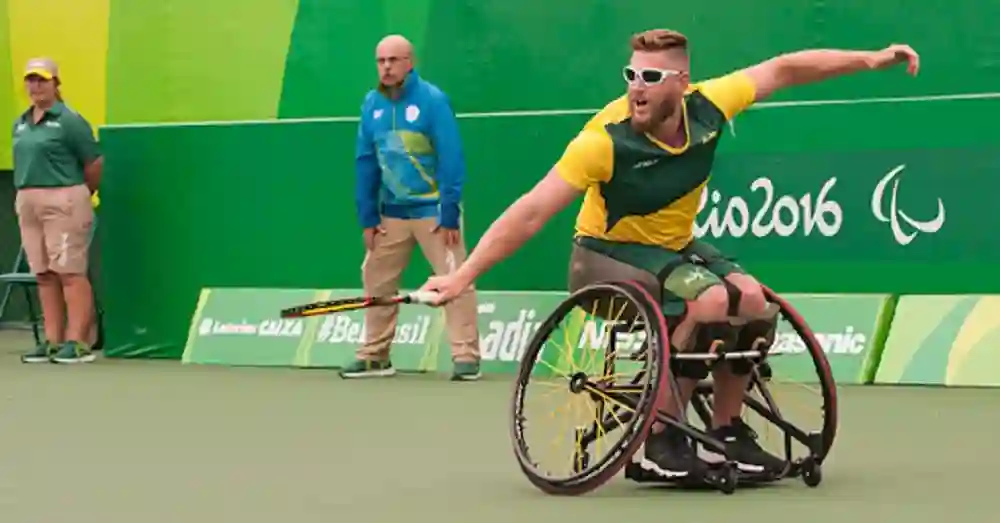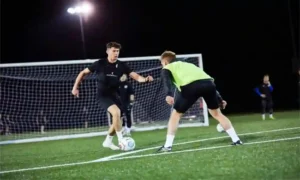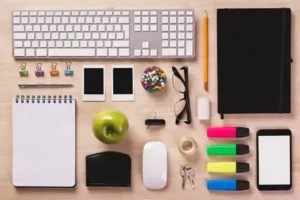Paralympic Athletes Who Redefined Disability in Sports

Alright, let’s talk about the Paralympics. You’ve probably heard of it, right? But here’s the thing: I always used to think of it as just another sports event for people with disabilities. But after digging into the stories of these athletes, it’s clear—Paralympians don’t just compete; they obliterate expectations. These athletes have redefined disability in sports, proving it’s not about what you can’t do, but how you adapt to make the impossible look effortless.
Before we dive into the legends, let me quickly hit you with the basics. The Paralympic Games are held right after the Olympics, but the twist is, they’re for athletes with physical, visual, or intellectual disabilities. It’s a massive event, one that showcases the kind of strength, resilience, and sheer willpower that’ll make you rethink what you thought you knew about athletes—and disabilities in general.
Now, let’s jump into some of the athletes who have totally reshaped the narrative.
Who Are These Paralympic Heroes?
In case you’re thinking, “Yeah, yeah, I know these athletes, they’re all legends,” let me tell you—these athletes aren’t just talented. They’re game-changers. They didn’t just break records; they broke the very concept of what it means to be disabled in sports.
1. Tatyana McFadden – The Queen of the Track
Alright, so Tatyana McFadden—this woman is a straight-up powerhouse. Born with spina bifida, she couldn’t walk as a child, but that didn’t stop her. Nope. Instead, she became one of the most decorated Paralympians in history. I mean, 17 medals and counting.
Fun fact: she was the first athlete ever to win the Boston, Chicago, London, and New York marathons in the same year. That’s four marathons. Four. I can barely make it through a Netflix binge without needing a nap.
- McFadden has slayed it in the 100m, 200m, 400m, and marathons, making her a literal legend in wheelchair racing.
- Seriously, the woman is like the Usain Bolt of wheelchairs.
She’s not just a champion on the track. She’s a symbol that disabilities aren’t limitations. They’re just… extra challenges to make you stronger. She’s the living proof that if you can make it through life with a smile, you can probably win a marathon or two.
2. Michael Milton – The Speed Demon
Okay, let’s talk about Michael Milton for a sec. The dude lost his leg to cancer when he was 9. Most people would’ve probably taken that as a sign to, you know, chill out. But Milton? Nah, he went on to slay both the Winter and Summer Paralympics. Yeah, he won gold in skiing and then switched over to cycling to win world records.
To put it bluntly, Michael Milton’s leg didn’t hold him back—it probably made him faster. I mean, he’s one of the few athletes to win gold in both the Winter and Summer Paralympic Games. Like, if you didn’t catch that, let me say it again: Winter and Summer. The man is just… always on.
- His cycling and skiing achievements have made him an icon of perseverance and sheer skill. You know, just a casual example of what happens when you never give up.
3. Beatrice Vio – The Fencer Who Defied the Odds
Okay, this one hits hard. Beatrice Vio, aka “Bebe,” lost her arms and legs to meningitis when she was just 11. I know, you’re thinking, “What? How does someone come back from that?” But Bebe is proof that the human spirit is unbreakable. She didn’t just return; she dominated the sport of wheelchair fencing.
This is one of those stories where you watch her in action and wonder how she does it. Like, I’m over here trying to figure out how to parallel park, and she’s out here winning gold medals in fencing. She’s like the Jedi Master of adaptive sports.
- She’s not just winning for herself; she’s changing how we think about athletes with disabilities. Her ability to overcome personal tragedy to become one of the best in the world is nothing short of awe-inspiring.
Anyway, here’s the kicker—her victory isn’t just about physical prowess. It’s a big “middle finger” to every doubt thrown her way. Beatrice is living proof that with the right mindset, nothing can stop you.
So, How Do These Athletes Keep Crushing It?
It’s all about resilience. Yeah, they’ve got killer skills, but let’s not forget about the mental game here. It’s not just about the body; it’s about the mind. And trust me, these athletes know it. They overcome insane challenges—psychological, emotional, and physical—on a daily basis.
1. Adapting to Their Disabilities
I used to think that overcoming a disability in sports was all about sheer willpower. Turns out, it’s about adapting. These athletes don’t just compete in sports; they adapt sports to fit their needs.
For example, Tatyana McFadden didn’t just race a standard marathon. Nope. She uses a custom-built wheelchair for racing. Same with Bebe—her prosthetic arms and legs aren’t just replacements. They’re tools she uses to fight, to fence, and to win. Adaptation is key.
- But let’s be real: adapting doesn’t happen overnight. It’s a hell of a lot of trial and error. Just ask my failed attempts at a DIY garden, which ended with me covered in dirt and weeds.
2. Mental Resilience—That Grit You Need
It’s easy to think that physical skills are all it takes to succeed, but I’ve learned (the hard way, mind you) that mental toughness is everything. Athletes like Milton and McFadden? They don’t just have physical resilience; they have mental resilience that’s out of this world.
They train their minds just as much as their bodies. I don’t know if you’ve ever tried to convince yourself to get up at 5 a.m. to exercise—it’s tough, right? Now imagine doing that while battling doubts about your abilities, your body, and your limitations.
- But these athletes? They don’t just get up at 5 a.m. They make sure their mental game is ready to go. And when that alarm rings, they’re ready to crush it.
3. Support System – You Can’t Do It Alone
Let’s face it, no one does it alone. Even the world’s top Paralympic athletes need a solid support system. Coaches, family, teammates—these people help these athletes stay grounded and stay focused.
Take McFadden’s story, for example. She had a coach who believed in her before she believed in herself. And, heck, that’s half the battle. Sometimes, you just need someone to remind you that you’re capable, especially on the days when you doubt everything.
- It’s like when my neighbor Tina told me her garden was stress-free because her plants had “positive energy.” Yeah, okay, Tina. But hey, whatever gets you through the day, right?
Impact Beyond the Medal
These athletes don’t just change the game; they change the world. And I’m not even talking about medals. I’m talking about perception. Disability in sports isn’t just about showing up and winning. It’s about showing the world that disability is not a limitation. It’s just a different way to approach the game.
1. Changing Perceptions
Before the Paralympics, let’s be honest: the world didn’t think too highly of people with disabilities when it came to sports. But thanks to athletes like these, we now know better.
- I remember seeing a story about Tatyana McFadden on the news and thinking, “She’s not just an inspiration to athletes with disabilities. She’s an inspiration to everyone.” That shift in thinking? That’s huge.
2. Inspiring the Next Generation
Paralympic athletes don’t just inspire other athletes—they inspire everyone. Whether you’re disabled or not, watching these athletes perform makes you question your own limitations.
- And let’s be real: if they can do it, then there’s absolutely no excuse for the rest of us to not at least try, right?
Looking Ahead
The future of the Paralympics? I’m all in for it. With technological advancements and more mainstream visibility, there’s no telling where these athletes will go next. We’re talking about new prosthetics, specialized equipment, and, heck, maybe even hyperrealistic training simulations.
- Whatever happens, though, one thing’s for sure: these athletes are only going to keep breaking down more walls—and I’m excited to see what they do next.
So, yeah. In case you didn’t catch the vibe—I’m now fully convinced that disability in sports is all about adaptation, mental grit, and breaking barriers. These Paralympic athletes? They’re not just rewriting the playbook. They’re throwing it out and writing a new one.







